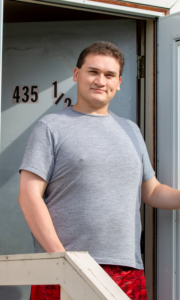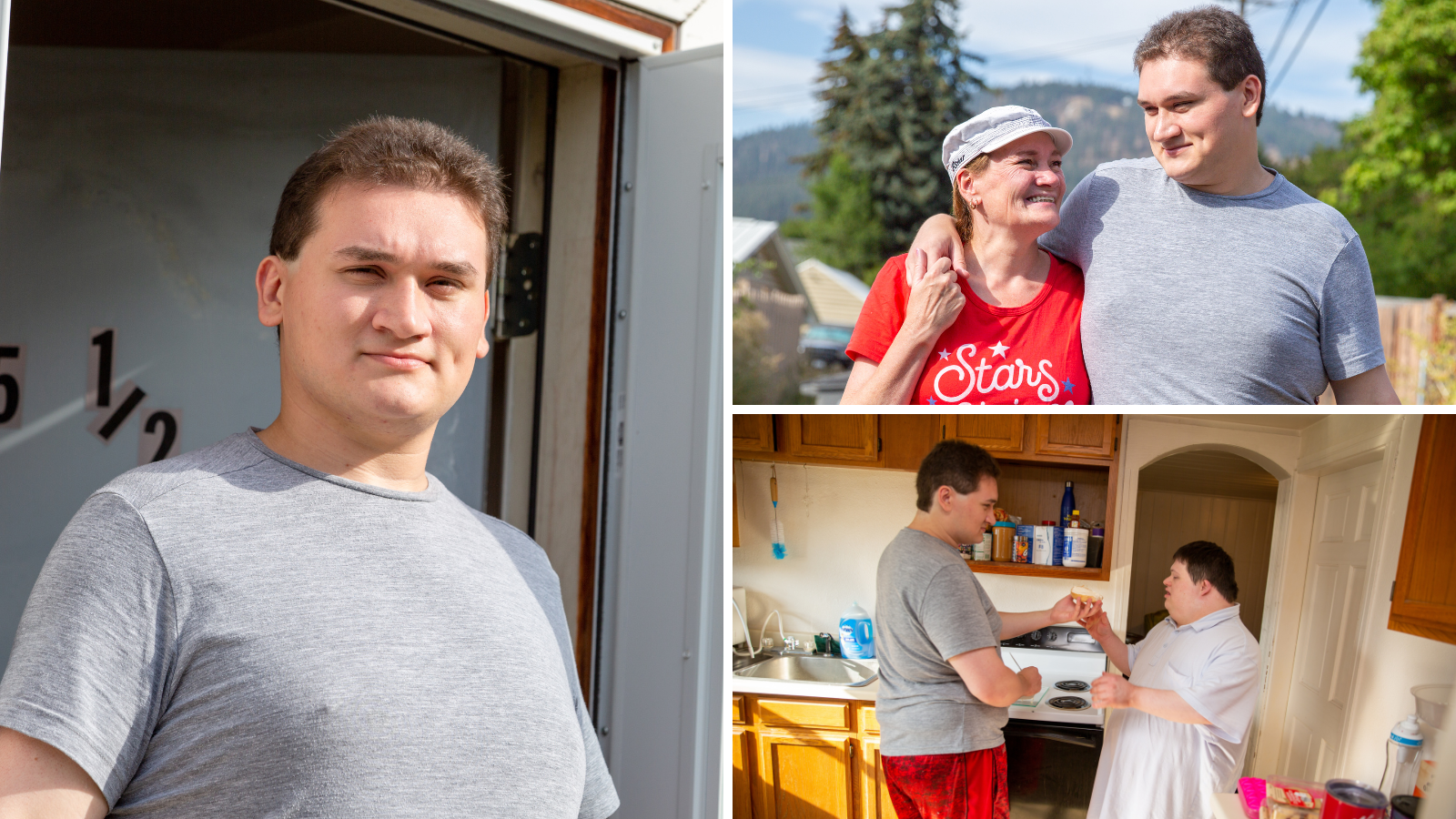Through interviews and original photography, PHI is working with direct care workers nationwide to document their stories and share their ideas for transforming jobs in long-term care. This interview is with Zchon Polon, a Independent Provider at Consumer Direct Care Network Washington in Colville, WA. He has been a direct care worker for six years.

“This work is rewarding in its own right, and I like being able to support individuals’ needs and help them do things they can’t do for themselves.”
At age 18, Zchon was supporting his grandfather as a family caregiver in a rural part of Washington state. Through a consumer-directed program, he then became an Independent Provider (IP) to care for his mother throughout her cancer treatment and for his brother who has Down Syndrome. Consumer-directed programs give families like Zchon’s more control over their home care services by enabling them to hire their own IPs directly. Overall, an estimated 70 percent of IPs in consumer-directed programs are family members or friends. While many family caregivers face challenges balancing unpaid caregiving with paid employment, Zchon receives compensation for providing care through the Consumer Direct Care Network Washington.
On why he became a direct care worker
“I had already been helping out my grandfather with things around the house when he was diagnosed with ALS. As he started having more and more medical needs, much of the care fell to me. It’s something I wanted to do initially—I enjoyed helping him and spending time with him—but it soon became something I did out of necessity for my family because no one else was able to step in and help.
Once I officially became an Independent Provider, I got access to resources and trainings I wish I had when I first cared for my grandfather. Now, my clients are my mom and my brother. This work is rewarding in its own right, and I like being able to support individuals’ needs and help them do things they can’t do for themselves. But caring for someone as your job is a lot more demanding than people think.”
On caregiver burnout
“Burnout can happen in any job, but especially with providing care, and especially when that care is for family members. When it comes to caring for family, there needs to be role distinction and a separation so you’re not ‘on’ all the time. Otherwise, that line can get blurred easily. When I have a day off, I tell my mom she can reach out if she really needs something from me, but otherwise, I ask her to talk to her other care provider instead. As soon as you start relaxing those boundaries, they stop existing, and then you get really drained.
Learning about boundaries was an important part of my training when I became an Independent Provider. We learned that boundaries help keep your relationships as healthy as possible and allow care providers time to reset. Otherwise, you’re taking care of your family 24/7, and sometimes you can start feeling resentful even though it’s not their fault that they have medical needs.”
On providing care in a rural area
“There are unique challenges that come with living in a rural area. There aren’t as many resources available to us, especially when it comes to socializing or other activities for people with developmental disorders. If we lived in a bigger town or city, they might offer workshops or other things that we could take my brother to. But there’s almost nothing for him in our area, which is sad. It can feel isolating sometimes, not having community involvement, but we find things to do amongst ourselves.”

“Learning about boundaries was an important part of my training when I became an Independent Provider. We learned that boundaries help keep your relationships as healthy as possible and allow care providers time to reset.”
Photography: Kristen Blush @kristenblush
***
The Direct Care Worker Story Project aims to enhance the visibility of this workforce, amplify its voices, and draw on workers’ unique wisdom to inform policy and practice. The Project seeks to address the lack of representation of direct care workers in public narratives and ensure images used to depict long-term care work are grounded in workers’ and clients’ real experiences. If you’re interested in sharing your story as a direct care worker, please email us at info@PHInational.org.




